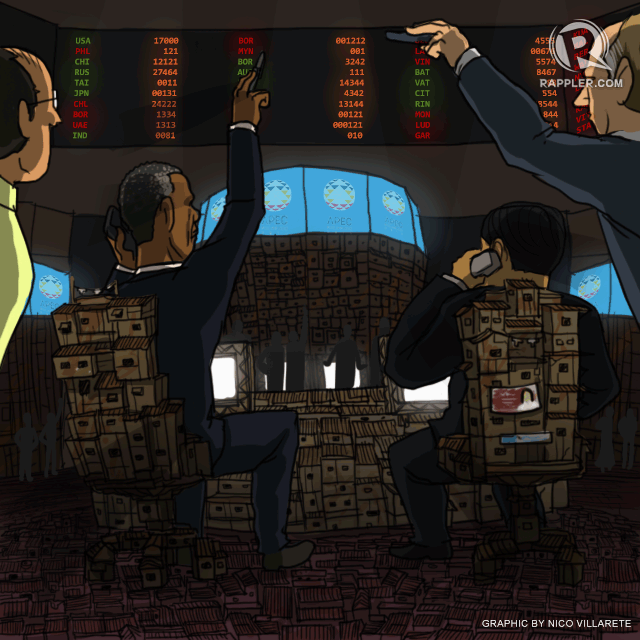SUMMARY
This is AI generated summarization, which may have errors. For context, always refer to the full article.

Twenty-one heads of state, 2 of whom will send representatives, will convene in Manila this week for the Asia-Pacific Economic Cooperation (APEC) summit. They will formally approve agreements earlier hammered out by lower-level officials. The world leaders include Barack Obama, Xi Jinping, and Shinzo Abe – whose economies are among the biggest in APEC.
It’s easy to dismiss the APEC summit as just one big glittering show. The 2-day event will be rich in ceremony, including the traditional photo op, the part where the leaders will don the finely crafted barong and pose for a multitude of photographers.
But beyond this, the APEC summit’s theme of “building inclusive economies” addresses a global concern, that of growing inequality. In 2014, the Credit Suisse’s “Global Wealth Report” found that “48% of the world’s $263 trillion in net household wealth is in the hands of the richest 1% of its citizens.”
This hits close to home: our country, after all, is a living microcosm of this problem. Cielito Habito, former economic planning secretary, wrote in 2012: “With our 40 richest families apparently accounting for the bulk of the growth in our national income, the Philippines has become a poster case for the now common call among development institutions for ‘inclusive growth.’”
One major indicator of the gap between the haves and have-nots is the prevalence of hunger in the poorest provinces. A 2015 survey sponsored by the World Food Programme (WFP) shows that the main causes are inadequate income and lack of a regular job.
For example, Sulu (58%), North Cotabato (50%), and Bukidnon (47%) were the areas where a prevalence of households suffered hunger due to lack of income.
The idea that propels “inclusive growth” is for the poor not just to be passive recipients of trickle-down wealth so that they could have food on the table. More importantly, the social and economic conditions should enable them to create wealth themselves. This means that they are able to start micro-enterprises and access jobs.
Good governance, of course, is vital here.
In the private sector, a number of businesses, influenced by international best practices, have made strides in this direction. Companies like Jollibee work with small farmers, sourcing some of their supplies such as chicken from them.
On a smaller scale, some restaurants do the same, buying vegetables, meat, dairy, and coffee from individual farmers or cooperatives. This business practice, if multiplied many times over, will help make “inclusive growth” a reality.
The APEC is a vehicle that can further push this momentum. As Jaime Zobel de Ayala of the APEC Business Advisory Council (ABAC) has said, APEC and ABAC are “setting the tone for inclusive growth wherein an average entrepreneur will have the confidence to compete in a bigger market” beyond local boundaries. – Rappler.com
Add a comment
How does this make you feel?
There are no comments yet. Add your comment to start the conversation.